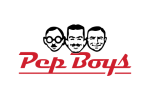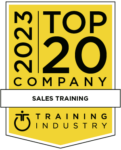Professional Sales Training Programs
It's Time For A Clear Cut Sales Advantage.
Achieve more goals with a sales culture centered around proven training that provides real-time value. If your team isn’t performing as they could, you’re not alone. 90% of senior executives fail to reach their strategic goals due to poor execution, no matter how solid their plans.
Improve the quality of your sales culture through Action Selling ®’s effective professional sales training specifically tailored to your needs.
Our Professional Sales Training Programs

Sales Training
Award winning programs that produce dramatic gains in sales performance.

Customer Relationship
Deliver more value and drive customer loyalty like never before.

Sales Leadership
Help leaders create, drive and sustain effective sales culture.
Compare Your Company’s Selling Skills To 500,000 Certified Sales Professionals

Everything You Need to Create a Better Sales Culture
Dynamic training and quality processes will dramatically improve sales, sales management and customer service relationships.
Expert Consulting
Strategic Alignment
Customer Success
Quality Processes
Skills Training
Sales Management
Sales Training Solutions from Sales Culture Experts
Action Selling ® can help your team’s knowledge of critical sales skills improve 43% and field application of skills by 85% through reinforced professional training.

Sales Culture
Learn to communicate and reinforce expectations and behaviors within your sales team.

Measure Sales Training
The Action Selling® training system measures sales skills throughout the entire process, resulting in a 6X sales performance increase over all other programs.

Sell Like Buyers Buy
Action Selling® provides a full-scale, proactive communications process that treats buyers with respect, leading to lasting relationships and repeat business.

Leadership Training
The Action Selling® Leadership Process walks you through a complete system for continuous improvement of your company's sales and service operations that can be implemented immediately.

Get Certified
Each member of your sales team will have unlimited access to our online system for managing the learning process and becoming certified in Action Selling®.

Award-Winning Training
Action Selling® instructs students through engaging virtual, in-person or online workshops utilizing the award-winning LearningLink system.
We’ve Trained More Than 500,000 Salespeople in Over 4,000 Companies Worldwide!

























Subscribe to Our Free Newsletter
Stay ahead in a rapidly changing world with our newsletter, eCoach. You’ll receive our insights on how to increase your sales and improve your team’s performance and skills.
Award-Winning Sales Training From Action Selling ®




